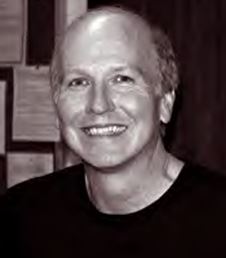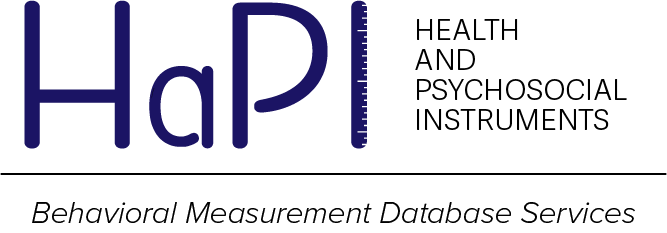Fred B. Bryant, Ph.D. Loyola University Chicago
Modern society simply could not exist without measurement. Twenty-first century civilization is inconceivable without the indispensable measurement tools on which everyday life depends. Time, size, distance, speed, direction, weight, volume, temperature, pressure, force, sound, light, energy—these are among the physical properties for which humans have developed accurate measures, without which we could not live our normal daily lives.
Measurement permeates every aspect of human life. Yet, ironically, we tend to take measurement for granted, and we fail to appreciate just how much we need and depend on our measurement tools. We overlook the importance of measurement because we are surrounded by it and have grown accustomed to it. It is only when our measurement tools malfunction or are unavailable that we begin to appreciate just how important they are. Truly, we only know what we’ve got when it’s gone.
However, if we were to try to live without measurement for even a single day, then we would quickly see just how vital measurement is and what measurement is in our everyday lives. A normal day would be impossible without measurement.
Try to imagine living a day without measurement.
As you go to bed, you begin to wonder how and when you will wake up the next morning to go to work. Without measurement, there would be no clocks or alarms to awaken you at a selected time. But on the positive side, if there were no measures of time, then no one could ever know whether or not you were late for work. The very notion of being on time would vanish without measurement.
After you wake up, you could not use an electric stove, oven, or microwave to make breakfast or coffee, because these devices rely on measurements of temperature or time to heat food and beverages. Nor could you use a modern refrigerator, since refrigeration requires measurement to keep food and beverages at a preset temperature.
In commuting to work, you could not drive because modern automobiles use onboard computers, which rely on measurement to control the ignition system, automatic transmission, brakes, engine temperature, throttle position, and mix of fuel and oxygen. Nor could you know how much fuel, oil, or transmission fluid your vehicle had, for without measurement there would be no fuel gauge or dip stick to check these fluid levels.
Even if you could drive a car, you could never know how fast you were going because you would not have a speedometer. But, on the plus side, the police would never be able to pull you over for speeding because, without measurement, there would be no radar to enforce the speed limit. Indeed, there could be no speed limits without knowing what measurement is.
At work, you could not use a computer, since computers require measurement in order to operate. Nor could you use a land-line telephone, cell phone, or fax machine to communicate with others, because these devices rely on measurement to operate.
Forget about flying, or taking a bus, train, or ocean liner on an intercontinental business trip; and forget about traveling overseas. Long-distance transportation and navigation would be impossible without the measurement of distance, speed, time, direction, and fuel.
And with respect to business and commerce, forget about keeping track of financial revenues and expenses, profits and losses, or savings and costs. Without measurement, people could not know how much money they have or how much money they are spending. On the positive side, however, without measurement you would never have to pay income taxes again, because the IRS could not operate without measurement.
Why Measurement is Important in Science
In a world in which no measurement tools exist, there could be no modern medicine, healthcare, surgery, pharmacology, radiology, dentistry, optometry, or audiology. And in a measureless world, there could be no science. For, as psychologist James Cattell noted in 1893, “The history of measurement is the history of science.”
Numerous observers have emphasized the necessity of measurement in advancing human knowledge and understanding. Consider the following quotations:
“If someone separated the art of counting and measuring and weighing from all the other arts, what was left of each (of the others) would be, so to speak, insignificant.”
— Plato (4th Century B.C.)
“By measurement to knowledge.”
— Heike Kamerlingh Onnes (1882), 1913 Physics Nobel Laureate
“In physical science the first essential step in the direction of learning any subject is to find principles of numerical reckoning and practicable methods for measuring some quality connected with it. I often say that when you can measure what you are speaking about, and express it in numbers, you know something about it; but when you cannot measure it, when you cannot express it in numbers, your knowledge is of a meagre and unsatisfactory kind; it may be the beginning of knowledge, but you have scarcely in your thoughts advanced to the state of Science, whatever the matter may be… the grandest discoveries of science have been but the rewards of accurate measurement and patient long-continued labour in the minute sifting of numerical results.”
— Lord Kelvin (1883)
Fortunately, we live in a world that allows us to make measurements. Measurement tools make our lives better and safer, and they enhance the quality and quantity of life. Arguably, the ability to measure physical properties accurately has tremendous survival value that gives humans an adaptive, evolutionary advantage honed through many years of natural selection. Thus, evolution may well have selected for measurement capabilities in human beings.
The mission of Behavioral Measurement Database Services, the producer of the HaPI database, is to provide comprehensive, accurate information about measurement tools in a variety of disciplines and professions, including medicine, nursing, public health, psychology, social work, communication, sociology, and organizational behavior/human resources. Reflecting the critical importance of what measurement is in research and practice, the Health and Psychosocial Instruments (HaPI) database is designed to improve access to measurement instruments in the health and psychosocial sciences worldwide. And improving access to health and psychological measurement tools will improve the quality and validity of science. Never lose sight of the vital importance of measurement, without which modern life could not exist. For, without measurement, we would truly be lost.

Dr. Fred B. Bryant is Professor of Psychology at Loyola University Chicago, where he has taught courses in social psychology, statistics, and psychometrics and conducted research for the past 30 years. He has roughly 200 professional publications in the fields of social psychology and personality. His current research focuses primarily on the dynamics of savoring—that is, the process of attending to, appreciating, and regulating positive experience.





